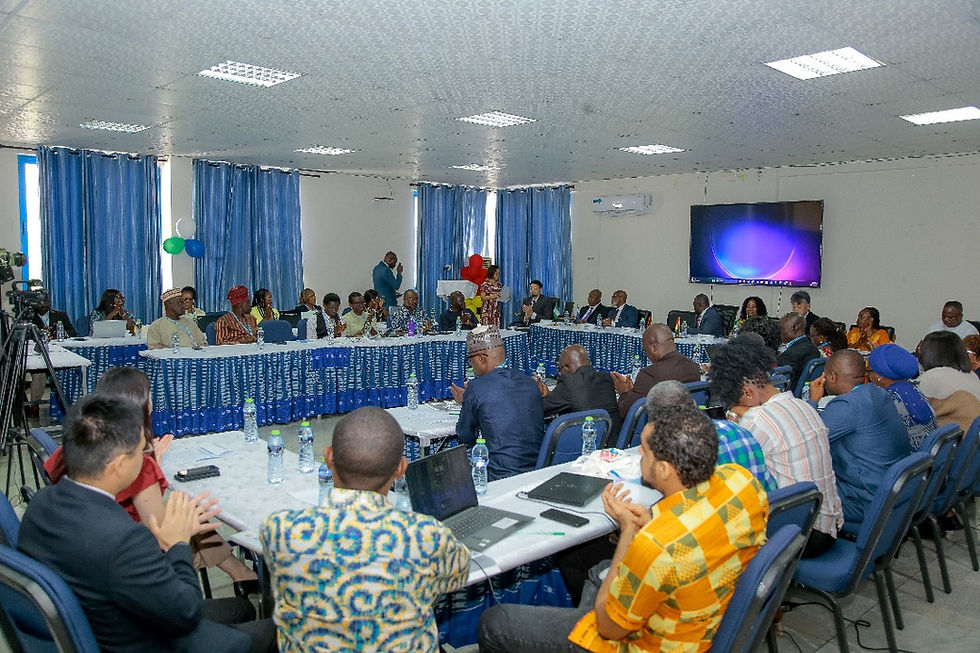Bank of Ghana records GH10.5 Billion loss in 2023
- Think News Online

- Jun 1, 2024
- 2 min read

The Bank of Ghana (BoG) has reported a loss of GH₵10.5 Billion for the financial year ending 2023.
This loss is primarily due to a significant rise in interest expenses on open market operations, which increased by GH₵6.7 billion during the year.
The BoG stated that these expenses were necessary to manage excess liquidity in the economy and support the disinflation process as part of a broader macroeconomic adjustment programme.
As of December 31, 2023, the Bank of Ghana and its subsidiaries had total liabilities exceeding total assets by GH₵65.36 billion.
Despite this, the total operating expenses for 2023 were GH₵19.2 billion, a notable decline from the GH₵66.9 billion recorded in 2022.
This reduction was attributed to lower impairment charges on loans and advances and the Bank’s holdings of Government of Ghana securities.
Although the GH₵10.50 billion loss is significant, it is an improvement compared to the GH₵60.9 billion loss recorded in 2022.
The previous year's loss was largely due to the impairment of the Bank's holdings of government stocks and instruments during the domestic debt exchange programme.
The Bank of Ghana highlighted that the open market operations, which contributed to the loss, yielded positive results.
The aggressive liquidity management helped reduce inflation from 54.1% at the end of 2022 to 23.2% by the end of 2023.
The 2023 Annual Report and Financial Statement also revealed that no amount was set aside for reserve appropriation, as reserves were in deficit as of December 31, 2023.
However, the Central Bank emphasized its ability to generate enough income to cover the costs of monetary policy operations.
The Board of Directors and Management remain optimistic, viewing the policy solvency outcome for 2023 as consistent with the previous year.
The Bank plans to continue operating effectively on a going concern basis and achieving its policy mandates despite the loss.
Consequently, the directors did not recommend paying dividends for the period.
To return to a positive equity position in the medium to long term, the Board of Directors has outlined several measures:
1. Refraining from monetary financing of the Government of Ghana’s budget, adhering to the Memorandum of Understanding on zero budget financing signed with the Ministry of Finance on April 26, 2023.
2. Continuing to optimize the Bank of Ghana’s investment portfolio and operating cost mix to enhance efficiency and profitability.
3. Signing a Memorandum of Understanding for the early recapitalization of the Bank of Ghana in the medium to long term.
During the second review of the ongoing IMF programme, which concluded on April 12, 2024, the impact of the Domestic Debt Exchange Program on the BoG’s balance sheet was extensively discussed.
A broad consensus was reached among the Ministry of Finance, the BoG, and the IMF on the need for early recapitalization.
An MoU detailing the recapitalization process is expected to be signed by the end of the third quarter.
The Bank of Ghana remains committed to implementing these measures to recover from the significant losses and stabilize its financial position.
Story by: Joshua Kwabena Smith








Comments